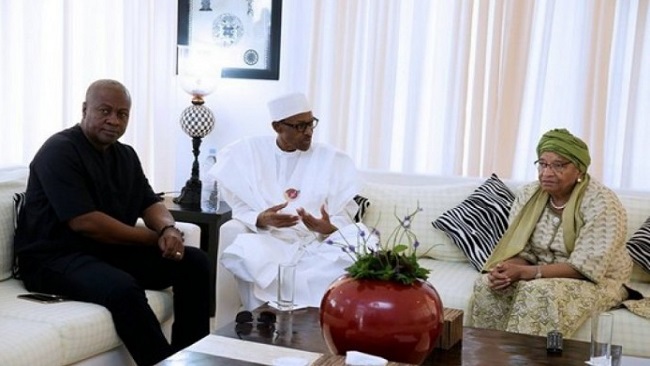Gambia: A President at home, A President abroad
The Economic Community of West African States (ECOWAS) and the African Union (AU) announced last week that they will no longer recognize President Yahya Jammeh as the Head of State of the Gambia from the 20th of January 2017 if he refuses to cede power to President-elect Adama Barrow.
The idea of resorting to the deployment of military force in the country was also discussed last Friday during the visit of the ECOWAS leaders in the Gambia which was attended by Dr. Mohamed Ibn Chambas, Special Representative of the Secretary-General of the United Nations for West and Sahel Africa.
To ensure that the electoral verdict is respected, Chambas said that ECOWAS should ask the Security Council to approve the deployment of military troops in the Gambia if President Jammeh refuses to give up power. Jammeh warned the international community last week that the crisis will be resolved in accordance with the laws in force in the Gambia and that an “external interference” will not be accepted.
The steps to resolve the crisis through dialogue are continuing while ECOWAS has asked President-elect Adama Barrow to stay put in Senegal, while negotiations continue for his likely inauguration on the 19th of January. De facto, Barrow finds himself by force of circumstances outside the country while Jammeh who received the support of the Army barricades in Banjul.
A private meeting of the Chiefs of Staff of ECOWAS was held last Saturday in Abuja to reflect on the deployment of a force called Group Military Intervention (ECOMIG) in the Gambia if power does not handed to the President-elect. The ECOWAS Chiefs of Staff have started to set up troops for a possible deployment in The Gambia. In this controversial circumstances, many political commentators fear of another Libya as Nigerian leader, Buhari and the other ECOWAS heads of state have been blowing the heat and cold for Adama Barrow inauguration.
Culled from Cameroon Concord News





